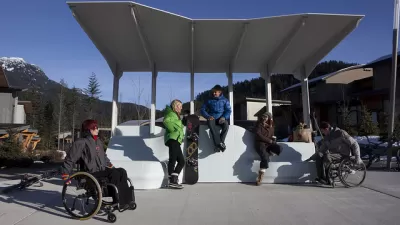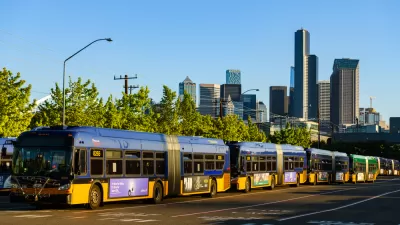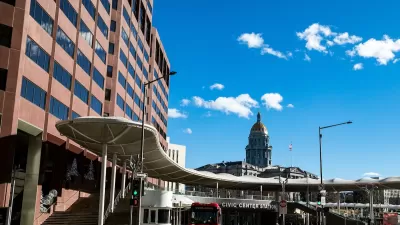A proposal for a radical reinvention of the fare structure for the country's transit systems—one that balances the cost of transit with that of driving, generates more revenue from fares, and enables more capital investments.
"With America's transit systems woefully underinvesting in their own capital infrastructure, it is time to consider whether the interests of the riders themselves are actually served by an approach that prioritizes low fares over high-quality service," writes Rohit Aggarwala.
"Shifting away from subsidized fares offers the promise of several benefits in return: improved and expanding services, more creative management, and the ability of even lower fares for certain riders who need them."
Citing the urbanizing trend of the country and a corresponding shift away from the car, Aggarwala suggests that these social changes might allow the evolution of transit fares. The article's suggestions for how to jumpstart that evolution:
- "[The] first task should be to look at what fares transit could charge given potential travel alternatives."
- "A second task in setting a fair fare would be thinking about which transit riders do, in fact, deserve public fare subsidies. The goal here would be a discounted price for groups who qualify in terms of need."
- "A final task would be to ensure that government policies are doing everything possible to equalize the cost of riding transit and driving."
FULL STORY: Why Higher Fares Would Be Good for Public Transit

Alabama: Trump Terminates Settlements for Black Communities Harmed By Raw Sewage
Trump deemed the landmark civil rights agreement “illegal DEI and environmental justice policy.”

Study: Maui’s Plan to Convert Vacation Rentals to Long-Term Housing Could Cause Nearly $1 Billion Economic Loss
The plan would reduce visitor accommodation by 25% resulting in 1,900 jobs lost.

Planetizen Federal Action Tracker
A weekly monitor of how Trump’s orders and actions are impacting planners and planning in America.

Waymo Gets Permission to Map SF’s Market Street
If allowed to operate on the traffic-restricted street, Waymo’s autonomous taxis would have a leg up over ride-hailing competitors — and counter the city’s efforts to grow bike and pedestrian on the thoroughfare.

Parklet Symposium Highlights the Success of Shared Spaces
Parklets got a boost during the Covid-19 pandemic, when the concept was translated to outdoor dining programs that offered restaurants a lifeline during the shutdown.

Federal Homelessness Agency Places Entire Staff on Leave
The U.S. Interagency Council on Homelessness is the only federal agency dedicated to preventing and ending homelessness.
Urban Design for Planners 1: Software Tools
This six-course series explores essential urban design concepts using open source software and equips planners with the tools they need to participate fully in the urban design process.
Planning for Universal Design
Learn the tools for implementing Universal Design in planning regulations.
Caltrans
Smith Gee Studio
Institute for Housing and Urban Development Studies (IHS)
City of Grandview
Harvard GSD Executive Education
Toledo-Lucas County Plan Commissions
Salt Lake City
NYU Wagner Graduate School of Public Service





























